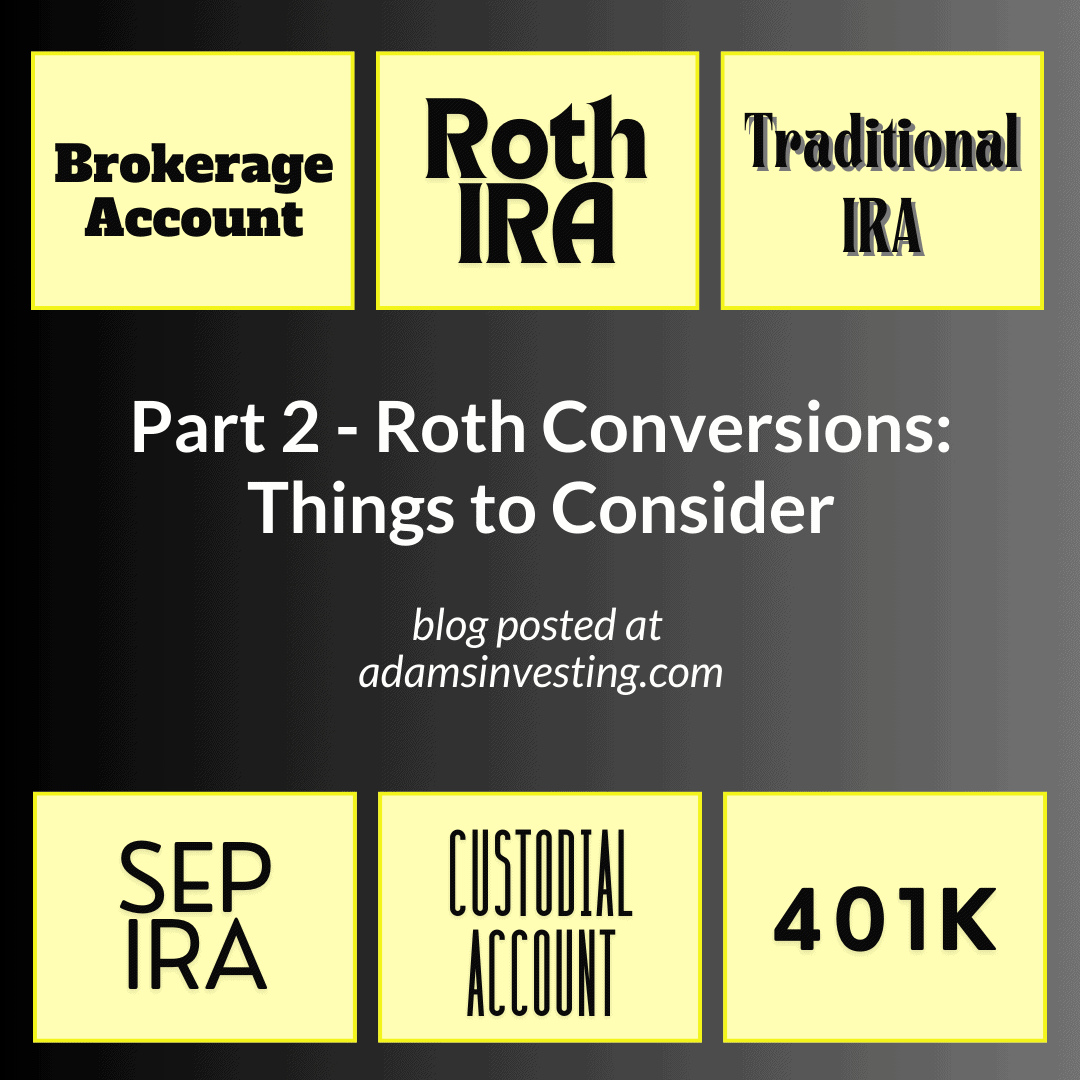In part 1 of our Roth conversions series we learned the basics –> Roth conversions transfer pre-tax money to a Roth IRA, which starts tax-free growth for your future. The trade-off is that taxes are due now, instead of later, on the converted balance.
Let’s dive deeper.
Reasons to Make This Change
What is your reason for considering a backdoor Roth? Some say it’s for retirement and some say it’s for legacy and others like the tax strategy. All are great answers.
Considerations
Let’s layout some of the major factors that impact this decision:
1. Income Level: see part 1
2. Tax Situation: What is your current and future tax situation? Converting traditional IRA funds to a Roth IRA triggers a tax liability on the converted amount. After you stop working, but before you start withdrawals and RMD’s is the “sweet spot” for a conversion. If you expect to be in a higher tax bracket in retirement or believe that tax rates in general will rise, converting to a Roth IRA may be advantageous. Additionally, many investors are wanting to leverage lower income tax brackets through 2025 before the provisions could sunset from President Trump’s tax overhaul.
3. Existing Retirement Accounts: Consider your existing retirement savings and accounts. If you have significant traditional IRA balances, converting them to a Roth IRA might result in a substantial tax bill. On the other hand, if you have mostly Roth or 401k accounts, a backdoor Roth IRA might complement your existing strategy.
4. Time Horizon: A longer time horizon allows for more potential tax-free growth in a Roth IRA, making the conversion more attractive.
5. Estate Planning: Roth IRAs offer advantages for estate planning, as they are not subject to required minimum distributions (RMDs) during the account holder’s lifetime and can be inherited tax-free by beneficiaries. This can be a consideration for people who want to leave assets to heirs tax-efficiently. For some other types of accounts, there is a “10 year rule” that requires an inherited account to be depleted within 10 years. This triggers tax issues during the beneficiaries potentially peak earning years, ie highest tax bracket. The Roth IRA eliminates taxes for heirs who inherit the account.
Unplanned Impacts
Note that Roth conversions can boost income and therefore can affect income-related monthly adjustment amounts, such as some Medicare premiums. Be sure to consider the impact on those types of items if you have any.
Adams Investing Takeaway
Converting traditional IRA funds to a Roth IRA can offer significant tax and estate planning benefits, but it requires careful consideration of your current and future tax situation, existing retirement accounts, and potential impacts on income-related adjustments. Lean on a professional to help you through the many considerations.
Blog written by House Writer. House Writer is not a registered investment advisor or broker/dealer and does not make security recommendations nor provide financial advice. Readers are advised that the material contained herein should be used solely for informational purposes, and to consult their personal tax and/or financial advisors as to its applicability to their circumstances. Investing involves risk, including the loss of principal.


